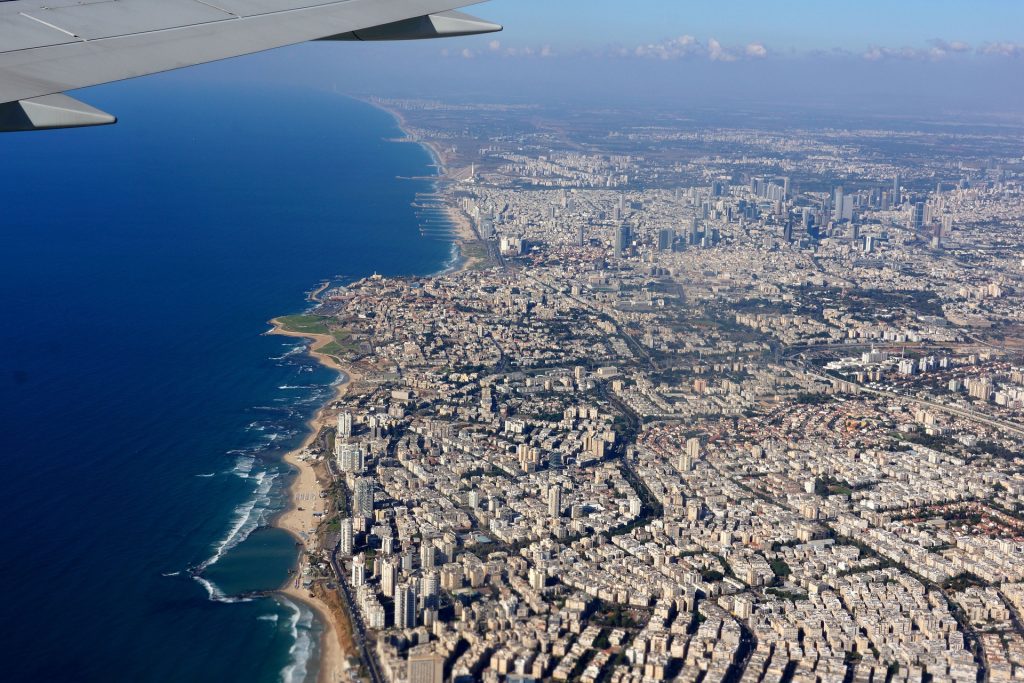Postdoctoral fellows coming to work at Israeli universities can choose between on-campus university housing, private off-campus housing and sometimes university-run off-campus rental apartments.
On-campus housing is a good choice for those who want to stay as close to work as possible. It is normally cheaper than renting private housing, and utilities are included in the rent. It also means you don’t need to worry about searching for a rental or negotiating with a landlord. Therefore, some postdocs choose to begin their life in Israel on campus before finding a rental.
Private, off-campus housing offers more choices in terms of location and lifestyle, and the freedom to personalize your home in Israel.
Accordion Title
University Housing
Below is the contact information of housing coordinators who can help guide you through on-campus and, sometimes, off-campus housing options at Israeli universities.
- Bar-Ilan University – Mr. Zvi Swisa: academic advisor for the International School;
phd-pd.intl@biu.ac.il - Ben-Gurion University of the Negev – Ms. Hen Crispel Shaya; megurim@bgu.ac.il
- The Hebrew University of Jerusalem – Mr. Maor Tirry: international research students coordinator; phdlife@savion.huji.ac.il
- Reichman University – Ms. Michal Litvak: dorms manager; michal.litvak@runi.ac.il
- Technion – Israel Institute of Technology – Ms. Nofar Gatnio: on-campus housing; postdoctoral@technion.ac.il
- Tel Aviv University – Ms. Vicktoria Chizhov: housing coordinator; housing@tauex.tau.ac.il
- University of Haifa – Ms. Dana Kramer: placement coordinator; damar@univ.haifa.ac.il
- Weizmann Institute of Science – The housing coordinator team;
student.housing@weizmann.ac.il
It is a good idea to start the process of procuring on-campus housing early — at least a few months before the academic year begins — as placements fill up quickly. Consider registering for on-campus housing even if you’re not sure if you want to use it.
At most universities, you will only be able to choose between dormitories on campus or private rentals off-campus. However, the Weizmann Institute provides university-owned off-campus rental apartments for first-year postdoc researchers; Ben-Gurion University offers apartments that can be rented for several years.
Private Housing
The Israeli rental market moves fast and at the last minute. Rental apartments are generally listed two to four weeks before the potential move-in date and tend to be claimed quickly. It’s very common for young professionals in Israel to share apartments. This allows you to split bills and can be a good way of getting to know people in your new area. The Facebook groups listed on our city-by-city housing pages can be a good resource for finding roommates.
Below are some resources for finding a rental apartment in Israel:
- Realtor: A realtor will know the lay of the land and may have special access to apartments. The downside of using a realtor is the extra cost, usually one month’s rent plus 17 per cent tax.
- Facebook groups: Join, peruse and post on local Facebook groups and the Facebook Marketplace. You’ll find specific group recommendations on our city-by-city housing pages.
- Yad2: Yad2 is a database of real estate listings for every city in Israel. This site is only in Hebrew, although viewing it using Google Chrome lets you receive on-site translations for some of the text.
- Short-term rentals: Finding an apartment while outside Israel is difficult. It may be a good idea to start in an Airbnb rental, hostel or sublet for a month or so while you get settled. Some universities offer local recommendations. You can find links on our city-by-city housing pages.
- Word of mouth: Inform your colleagues and friends in Israel that you are looking for a place to rent. Someone will likely know someone who is moving out of an apartment and is looking for a replacement. This is the easiest way to find an apartment.
Rental Contracts
Rental contracts for private housing can be different from the ones you are used to. Request the contract before the signing day and ask a fluent Hebrew speaker to look it over before signing. It is even preferable to take someone who speaks Hebrew with you to the contract signing. Some universities have free law clinics where student lawyers will review your contract and even accompany you for negotiations and signing. Contact your university housing representative to see if this service is available.
Most Israeli rental contracts are for one year. In general, the tenant is responsible for paying rent, utilities, and arnona (municipal taxes). Contracts should also list fees for damages, late rent payments, breaking a lease early and repairs. A good lease will also include the landlord’s responsibilities, such as electrical or plumbing repairs.
If the apartment comes furnished, the contract should list the contents of the apartment. However, in Israel it’s common to rent an apartment that is unfurnished or only partially furnished. To furnish your apartment without spending too much, you can visit IKEA or get second-hand items on Facebook Marketplace or Yad2. Many cities also have very active local buy-sell-swap Facebook groups.
Many landlords will ask you to provide a year’s worth of post-dated cheques for rent, a security deposit, and a guarantor with an Israeli ID. Some postdoctoral fellows have had success asking their advisor(s) or someone from abroad to act as their guarantor. You can also ask your landlord to accept a larger security deposit in place of a guarantor (this will be at their own discretion).
As you will not have an Israeli identity number, setting up and paying for utilities and arnona (municipal taxes) can be an issue. You won’t be able to pay these bills online or by phone. They can be paid in person at the post office or the municipality offices. To get around this, ask your landlord to keep the bills in their name and add the bills to the rent every month. If you have an Israeli roommate, you can ask them to put the bills in their name.
For more information regarding housing in the specific city you will be living in, take a look at the city guides for Tel Aviv, Jerusalem, Haifa, Rehovot, and Be’er Sheva.




